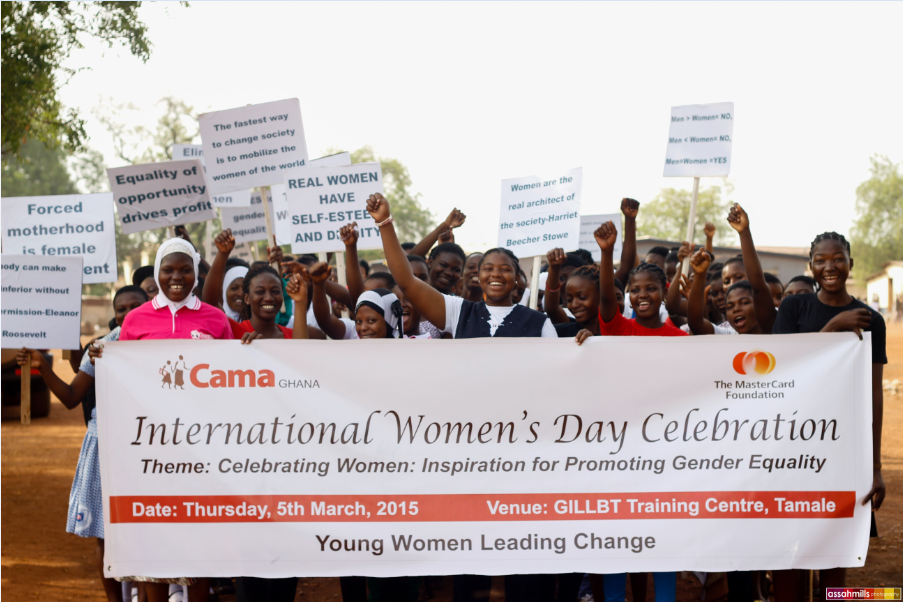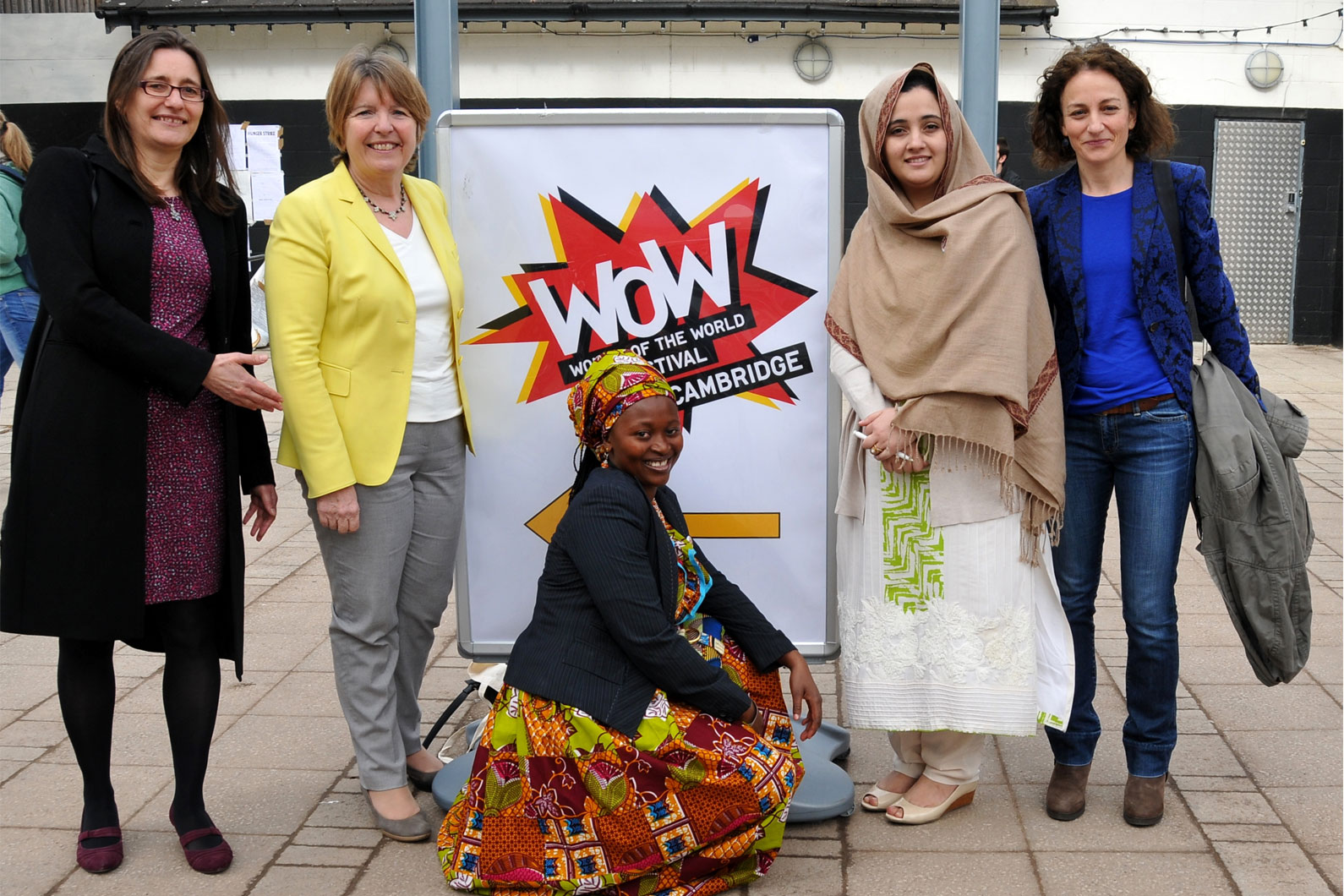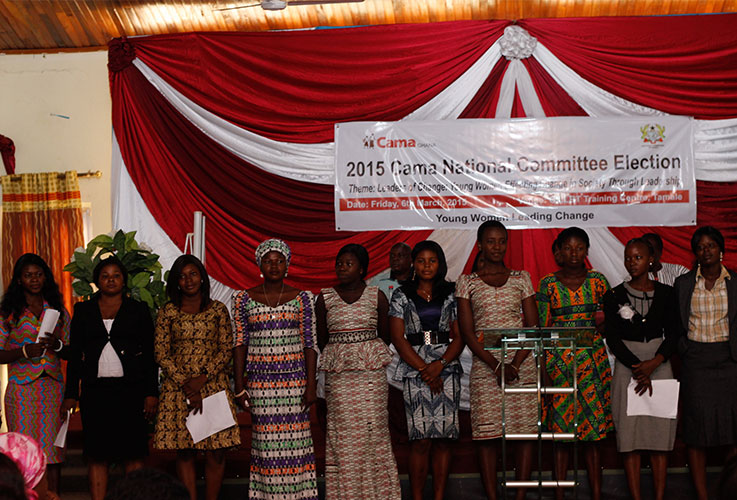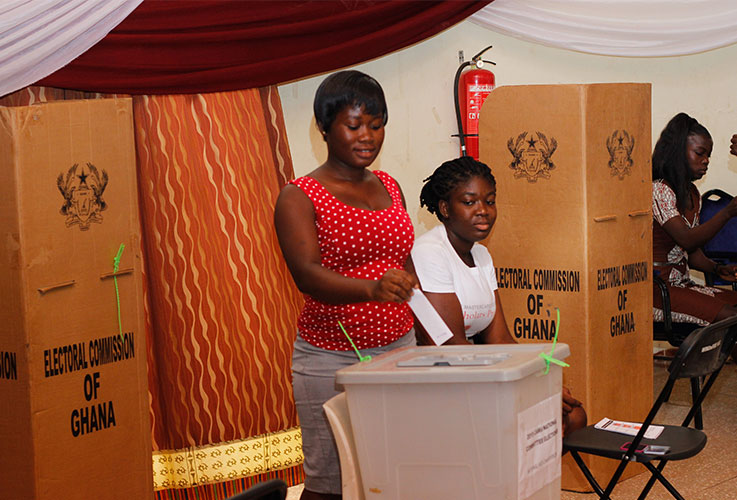When You Educate Girls, THIS is What Change Looks Like

CAMA Ghana holds an International Women’s Day rally and forum. Camfed supported the media outreach, partnering with The MasterCard Foundation
In the week culminating in International Women’s Day, the world celebrated the achievements, diversity, strength and resilience of girls and women, while passionately discussing ways to break down the many challenges and obstacles to gender equality that still remain.
For Camfed and the young women in CAMA, the Camfed alumnae association, this week was about showing the world what change really looks like when groups of girls are supported to go to school through a partnership that galvanizes all the resources in their communities. CAMA members organized an International Women’s Day rally and forum in Ghana, spoke on a high-level education panel in the UK, and delivered their manifestos at the CAMA National Committee Elections in Tamale.
CAMA Ambassador Fatima Yakubu Speaks at Women of The World Festival.
CAMA Ambassador Fatima Yakubu speaks at WOW 2015 in Cambridge, introduced by Lucy Lake. The panel chaired by Dame Barbara Stocking includes Malala’s teacher Mariam Khalique, Professor Pauline Rose and Zoah Hedges Stocks.
The audience was riveted when CAMA ambassador Fatima Yakubu from Ghana, introduced by Camfed CEO Lucy Lake, began telling her story on a panel entitled “The Education Emergency” at the Women of the World (WOW) Festival in Cambridge this International Women’s Day. The panel, chaired by Dame Barbara Stocking, included international education expert Dr Pauline Rose, Malala’s former teacher Mariam Khalique and Zoah Hedges Stocks from the Showman Traveller community.
“I am the thirteenth in a family of 14 children,” Fatima explained, “and I am the only educated person in my family. I take care of all my siblings.” Fatima’s struggle to obtain a secondary education and fulfill her lifelong dream of becoming a nurse began as soon as she had completed primary school. There was no money for secondary school fees, and while her mother started selling off her clothes to support her daughter, Fatima’s father saw no realistic chance for her to complete her schooling. Yet she completed Junior High School by getting up at 4 AM every morning to sell chewing sticks at the market, returning to do more selling after school. She studied late into the night by a smoking lantern, which has permanently damaged her eyes.
By Senior High School, Fatima’s father began to appreciate her determination and hard work, and sold one of his two sheep to help with school fees. Her mother sold the rest of her belongings. She continued to sell her sticks. “Every day I had to walk 3 hours to school,” Fatima explains, and takes the audience with her on a journey which often saw her coming to school in soaking wet clothes and not being able to leave again until she had somehow managed to dry them. Fatima passed her exams and was promised paid work by a relative in Accra, but was used for her labour, remained unpaid, and became very ill. After returning home to recuperate, she found to work in an orphanage, and continued to sell chewing sticks.

Fatima selling her chewing sticks, looking after children and teaching at the lcoal orphanage in order to earn enough money for nursing school
One of 94 students (out of 600) who successfully applied to nursing school, she nevertheless realized that she did not have sufficient money to pay for her school fees. When she had almost given up, a friend introduced her to Camfed, which stepped in to support her studies.
Now Fatima is a professional nurse in Ghana, and an active CAMA education ambassador and health advocate, speaking on diverse platforms to encourage other young women from poor backgrounds to seek education and develop as leaders. She delivers information to communities on maternal health, Hepatitis B, epilepsy, sexually-transmitted diseases, domestic violence, and malnutrition. “Women are discriminated against not because we are weak or stupid, but because we are not empowered,” she says, “And education makes one empowered. I am empowered now physically, emotionally, psychologically…because I am educated…I serve as a role model to a lot of people. Young women always come to me for advice. I do a lot of advocacy. I make sure girls out there take their studies seriously. I teach girls about teenage pregnancy, contraception, and how to keep themselves safe.”

From left: Professor Pauline Rose, Dame Barbara Stocking, Fatima Yakubu, Mariam Khalique and Lucy Lake. Photograph: Stef Ferrucci
Fatima recently served as a volunteer member of a radio team which successfully held 17 weeks of live discussions educating the public, particularly students, on the safe use of ICT, and she was one of the main facilitators at CAMA’s 2014 Leadership and Enrichment Camp, imparting her experiences and knowledge to future leaders. As well as helping her younger sister and other community members through school, she is now saving to continue her education and become a qualified midwife, helping more women in her community to safely deliver healthy babies.
CAMA National Committee Elections

March 6, 2015: CAMA Ghana candidates standing for National Committee posts getting ready to answer questions. Photograph: assahmills photography
Just two days before Fatima’s talk, CAMA members held their National Committee Election in Tamale, Ghana in association with the Ghana Electoral Commission, sending live updates to Fatima as she travelled to the UK for the very first time. CAMA members democratically elect leaders of District as well as National Committees. They cultivate leadership and management skills, learning about accountability and transparency as they enact the governance principles of CAMA, whose guiding ethos is about ploughing the benefits of their education back into rural communities.
13 young women delivered their manifestos to a large audience made up of CAMA’s national Chairperson, CAMA members, girls currently being supported through secondary school by Camfed, the Executive Director of Camfed Ghana, the media, and many invited guests. The positions contested included the CAMA National Chairperson, Vice Chairperson, Treasurer, Secretary and Organizer. These young women leaders are spurring remarkable change as they use their education to benefit others.

The CAMA District Chairperson casting her vote. Photograph: assahmills photography
“I am inspired to see change translate among young women worldwide,” says Fatima. “Soon CAMA, the great Camfed alumnae association, will rule the whole nation, because the hand that stirs the pot can equally rule the nation.”
